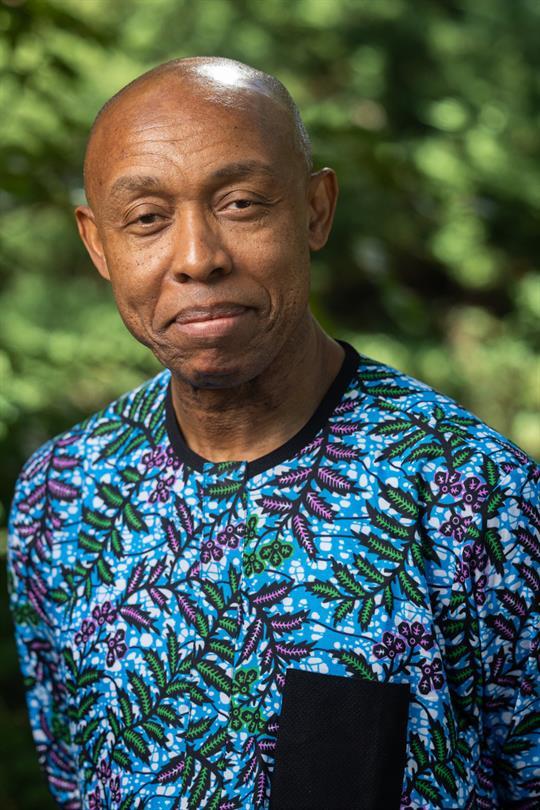A mere four years after emerging from a civil war, in 1974, Nigeria was at the beginning of an oil boom. Then, as today, the country was in the middle of a debate about fiscal federalism and revenue allocation. Unlike today, however, there were significant differences: the country was under military rule and the men leading the debate were all soldiers. In the fifty years since then, the structure of this debate and the geo-political symmetries that define it have evolved only a little.
The immediate spark for the debate fifty years ago was the publication of the statutory allocations to the twelve states of the federation then for the fiscal year 1974-75. With a population of 2.5 million, Mid-West State received N139.9 million or 23.7% of the allocation. Rivers State, whose population was 1.5 million, received N101.1 million.
Isawa Elaigwu, semi-official biographer of Yakubu Gowon, the army general who was Nigeria’s military head of state at the time observed about this that “while both Rivers and Midwestern States, comprising 7.3% (4 million) of the country’s total population, shared between themselves 40.83% (N241.00 million) of the total allocation to the states, the ten other states which accounted for 92.7% (51.6 million) of the country’s population, shared among themselves 59.17% (N349.2m) of the statutory allocation.”
Usman Faruk, the Commissioner of Police who governed the North-Western State was unhappy with the dissension over the sharing of the allocation because, he said, all of them in the Supreme Military Council then agreed it. Joseph Gomwalk, another Commissioner of Police and then military governor of Gowon’s own Benue-Plateau State; and Jacob Esuene, who governed the South-Eastern State called for a more objective system of revenue allocation. If they knew what such a system looked like, they didn’t say. Kwara’s military governor, David Bamigboye as well as General Abba Kyari of the North-East went on record to call for a review of the allocation formula. For their part, Oluwole Rotimi and Mobolaji Johnson, military governors respectively of the Western and Lagos States advocated for “a revenue allocation formula that would guarantee responsible and stable government for Nigeria.”
Nigeria’s search for a workable federalism in many ways can be reduced to the search for precisely such a formula. It has proved elusive. If anything, it may have got even more so. In the 36 years between 1946 and 1980, spanning the colonial and post-colonial periods and including military as well as elected civilian regimes, the country burnt through the reports of at least eight blue ribbon panels on the question of fiscal federalism.
On the eve of independence in 1958, the report of Raisman Commission recommended the creation of a Distributable Pool Account (DPA) into which was to be paid 30% of revenue from mineral rents and royalties and from import duties. The regions retained 50% of the revenue from mineral rents and royalties from their region while the central government took 20%. 70% of the revenue from import duties went to the central government.
READ ALSO: Op-Ed: In The Matter of Dele Farotimi Before The Star Chamber By Chidi Anselm Odinkalu
Six years later and four years after independence, the Binns Fiscal Commission increased the DPA share of the income from import duties from 30 to 35% at the expense of the share of the central government. Importantly, the report set its face against the principle of derivation, replacing it with that it called the principle of “financial comparability.” On this basis, it recommended the sharing of the DPA receipts as follows: Northern Region 42%; Eastern Region 30%; Western Region 20%; and Mid-Western Region 8%. Lagos was then the federal capital. Up to this point, the fiscal balance largely favoured the regions who contributed resources to the central government.
In 1968, Nigeria’s post-colonial crisis of state legitimacy had already exploded into a year-old civil war. Under pressure from both the economic costs of the war as well as its structural antecedents, Yakubu Gowon, the war-time Supreme Commander (as he was then known), called upon Chief I.O Dina, a former history lecturer at the University College Ibadan, to lead what the regime called an Interim Revenue Allocation Review Committee.
The legacy of the Dina Committee recommendations was very far reaching and suited the regimental mood of the military. The Committee addressed frontally the issue of taxation and public goods. It recommended a centralization of taxation as well as the harmonization of the produce marketing boards which were until then mostly regional. The Dina Committee also recommended a centralization of the funding of higher education and the replacement of the DPA with what it called a State Joint Account. Additionally, the committee recommended that states should retain 100% of rent from onshore extractive operations on the basis of derivation and also receive another 10% of royalties revenue as derivation.
Even in the midst of an existential conflict at the time, the fuss that followed in the wake of the Dina Committee report was deafening. Officially, the Federal Military Government rejected the Dina Committee Report. In reality, Isawa Elaigwu recalls that “….Gowon did not raise dust over the issue but quietly implemented most aspect of this report through the back door at the appropriate time.” The result is that the Dina Committee Report has been quite influential in shaping Nigeria’s version of federalism.
Gowon enjoyed three advantages at the time in his handling of the unitarising tendencies that underpinned the recommendations of the Dina Committee. First, the civil war was an extenuating circumstance. Second, the regimental traditions of military government limited the degree of elite dissension. Third, as a military ruler, he ultimately did not have to suffer any institutional constraints similar to those imposed by a parliament or its equivalent under elected civil rule.
READ ALSO: Emmanuel Obioma Ogwuegbu: The Last of a Few Good Men? By Chidi Odinkalu
For the current incumbent fifty years later, a civilian seeking to accomplish what would be the most far-reaching restructuring of Nigeria’s fiscal fundamentals in 110 years, none of these advantages exists and he suffers many more debilitations besides.
By some coincidence, in the year that Gowon constituted the Dina Committee, the celebrated Kenya political scientist, Ali Mazrui, explained the challenges of structural stability in post-colonial African states in terms of two underlying crises of state legitimacy and of regime legitimacy.
Fiscal reform on the ambition evinced by the proposals now under consideration in Nigeria assumes the existence of a capable state which enjoys affinity among citizens, an overwhelming percentage of whom should be documented. None of these can be taken for granted in Nigeria. The evidence from across the fields of financial inclusion, electoral participation, and taxation suggests that the proportion of documented Nigerians does not exceed 40%. It will take more than a few convenient ebullitions to address this.
Any government will be challenged in addressing it. An administration that suffers from manifest issues of legitimacy lacks the currency to trade with in this situation. The crisis that afflicts the current proposals is that of a government unwilling to put in the work required to redress deficits of state and governmental legitimacy around the country. To address what is evidently a political problem, the government has chosen instead to escape into self-inflicted technocratic gobbledygook.
Fiscal governance and reform is not as complex as the administration and its mouthpieces would like to suggest. Taxation is more than mechanical computation. It is the centrepiece of the social compact between a state and its citizens. With considered inadvertence, the administration of Bola Ahmed Tinubu has done itself a world of good by inspiring these increasingly raucous debates about the state of that compact in Nigeria or the lack of it. It will be best served by listening to the debate in humility while it learns.
- A lawyer and a teacher, Odinkalu can be reached at chidi.odinkalu@tufts.edu




